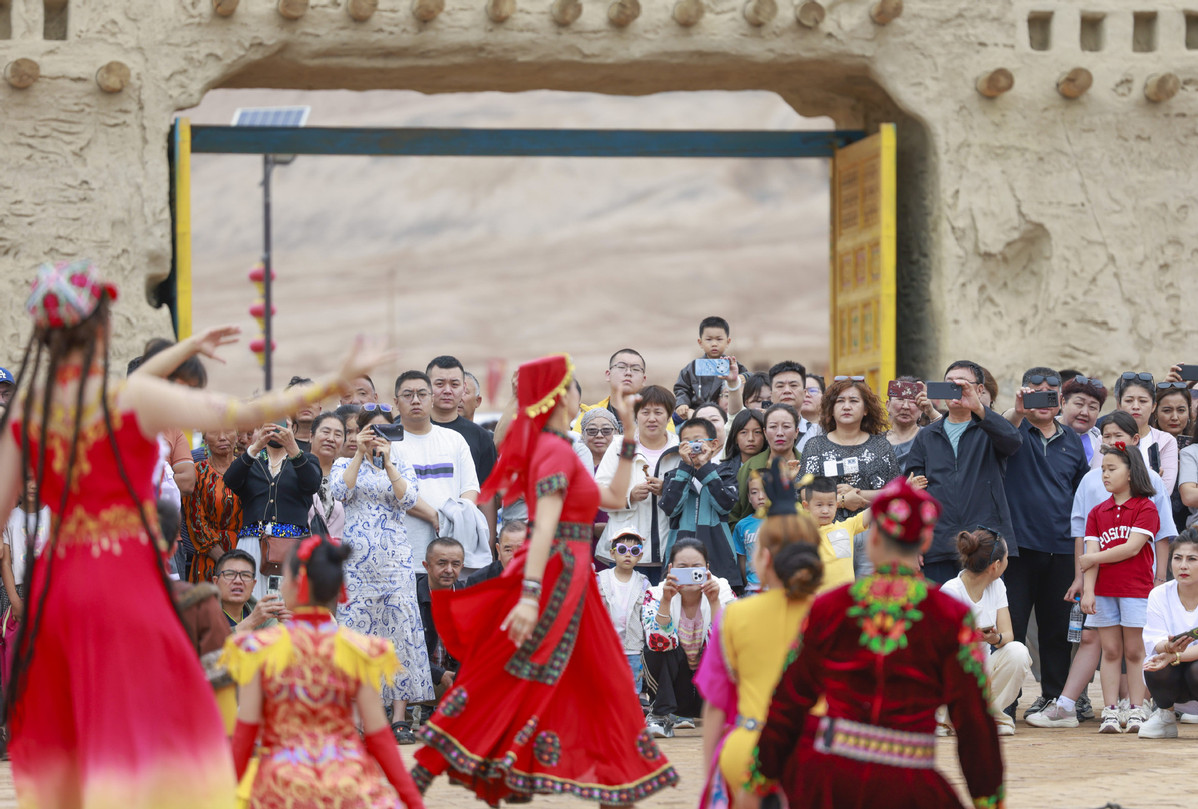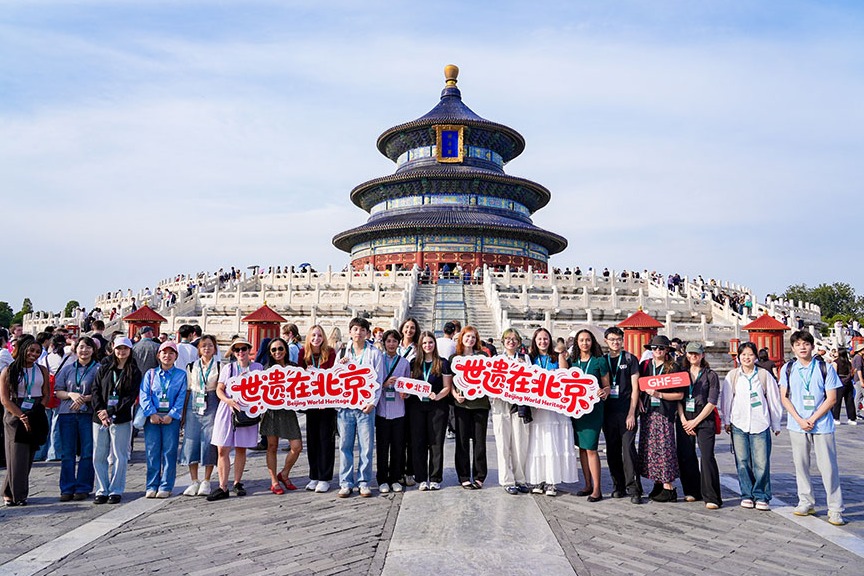Appetite for virtual guides giving real experiences continues to grow


TAIYUAN — Wu Hongbo, a visitor from Dalian, Liaoning province, recently used artificial intelligence to plan a detailed tour of Shanxi, a province in northern China known for its cultural heritage.
By entering his destinations, travel dates, budget, and personal interests into an AI application, he received a personalized weeklong travel itinerary. With a detailed plan covering transportation, attractions, and accommodation, he embarked on a more convenient and efficient AI-powered journey across a province that was completely unknown to him.
An avid fan of martial arts novels, Wu has long held a fascination for the Yanmen Pass — a famous section of the Great Wall often mentioned in his favorite stories — and was determined to visit during his trip.
As it was his first visit to Shanxi, he felt that joining a tour group would not only be too expensive, but also lack the flexibility he wanted. Faced with many attractions and complicated travel routes, Wu turned to AI for assistance.
The guide included major sites such as the Yungang Grottoes, the Wooden Pagoda of Yingxian county, and Wu's personal favorite, Yanmen Pass. Based on his interest in ancient architecture and food, the AI app also recommended several lesser-known yet culturally rich attractions and delicacies.
"This AI-planned tour has truly provided me with unexpected surprises," Wu says. "The recommended attractions and routes perfectly matched my taste, giving me a deeper understanding of Shanxi."
During the May Day holiday, China's tourism market saw a significant surge. The Ministry of Transport estimated that on the first day of the holiday, the number of passenger trips exceeded 340 million, marking an 8-percent increase year-on-year. This trend reflects a growing optimism in the tourism sector, with both domestic and outbound tourism experiencing robust growth.
As travelers seek more immersive and personalized experiences, AI's role as cyber tour guide has not only improved the efficiency and quality of travel, but also introduced a new level of intelligence to trip planning.
On social media platforms, content such as "DeepSeek's customized five-day four-night Shandong travel plan" and "Two-day AI-generated Chengdu itinerary" is becoming increasingly common.
Industry analysts believe that 2025 will be the breakout year for AI tour guides. With the spread of 5G and digital technologies, immersive experiences will become mainstream.
During a trip, AI can also provide real-time services. Through voice recognition and precise positioning technology, it can act like a personal guide, providing detailed explanations of the history, cultural connotations, and features of attractions.
Liu Xilei, a visitor from Hebei, did not hire a human tour guide when he visited Jinci Temple in Taiyuan. Instead, he used Doubao, ByteDance's AI-powered chatbot, to thoroughly prepare for his visit.
"I learned a lot about the background of the temple, as well as its architectural features and cultural value," Liu says.
As the AI trend gains momentum around the country, major scenic spots are accelerating technological upgrades.
Popular tourist destinations like Huangshan Mountain in Anhui province, Lushan Mountain in Jiangxi province, and the Wushan scenic area in Chongqing have also integrated DeepSeek to enhance smart interactions and provide a more personalized visitor experience.
Chinese travel service and social networking platform Mafengwo's AI local guide initiative is also broadening its reach.
"They're more than just tour guides, they're experts who capture the essence of a city," says Sun Yunlei, director of Mafengwo's destination research institute. The platform recruits long-term residents — those who have lived in a place for over five years — to help train its AI models, giving each virtual guide a local touch. For example, the "ginger duck" AI in Fujian can effortlessly recommend hidden alleyway eateries, while its counterpart in Guizhou is well-versed in the best-kept secrets for enjoying spicy cuisine.
Li Xinjian, executive director of the Beijing Institute of Culture and Tourism Development under the Beijing International Studies University, believes that AI will fulfill demand for customized travel and enable scenic spots to accurately provide matching products and services.
"This enhances efficiency and experiences while invigorating the cultural and tourism industry. In the future, AI tour guides will probably complement human guides, jointly delivering a higher quality and more personalized service to make travel even more exciting."

































